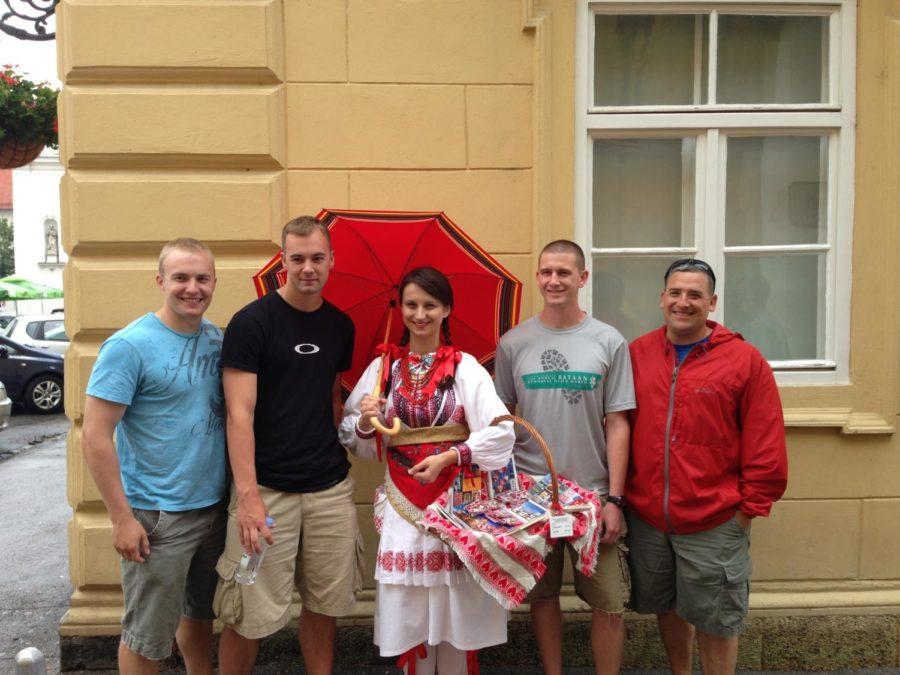Army ROTC program prepares cadets for culture diversity
February 10, 2014
For the military, understanding different cultures and being able to interact with them is important. That is why the Army created the Cultural Understanding Language Proficiency program, to better prepare cadets for a future oversees.
The Cultural Understanding Language Proficiency program was created five years ago by the United State’s cadet-command.
“The army looked at ‘what do we want as an officer,’” said Lt. Col. Richard Smith, professor of military science. “And that is we want them to be, globally aware and understand different cultures.”
CULP is a program that cadets apply to be a part of, after first being under contract with the Army to apply.
They are then accepted based on their merit, Iowa State grade point average, ROTC grade point average, physical fitness scores and approval from ROTC leaders.
This summer 1,500 cadets, from across the United States, will visit 42 different countries. These countries will be in Africa, Asia, Europe, Central America, South America and the Caribbean.
There are different versions of missions that a cadet may be a part of and which mission that will be depends on what country they visit.
There are various missions for cadets: a humanitarian mission, building roads and wells, a language focused mission, teaching villagers and foreign military to speak English or a military-to-military mission, where cadets will train along side foreign military personnel or cadets.
“It’s a great cultural exchange, not just for us, but for the foreign militaries as well. They get to know us and the quality of character in our military that we are producing,” Smith said.
At the beginning of each planning year, cadet-command is in touch with countries that are asking for the United States’ help and what they need done.
Smith will be operating his own cadet-command mission to Croatia this summer. While some of the cadets he will lead will be Iowa State students, there will also be cadets from California, Florida and more.
“[The CULP program] is beyond the leadership and beyond the cultural understanding. It is just an incredible opportunity for our program and for Iowa State to have students with a cultural perspective,” Smith said.
The main basis for the program is to produce better soldiers and officers for the Army.
“We, the Army and cadet-command, are helping our cadets to get a broader understanding of the world around them,” Smith said.
And that was why many students applied to be a part of the program – for cultural understanding.
Jason Sadowski, senior in supply chain management, was a part of a military-to-military mission last summer in Croatia.
“It was awesome, in general, just getting that cultural awareness and perspective will help us relate better to other cultures for when we actually do get into the military,” Sadowski said.
Similar to the Army’s goal, many of the cadets also believe that by participating in CULP they will become better leaders.
Aaron Hett, senior in mechanical engineering, went to Benin and participated in both a military-to-military mission and a humanitarian mission.
“Whenever you go oversees, you’re going to need to learn how to interact with them. So learning how to interact with people of a different culture and how to convey your ideas or the means of what you’re talking about was really beneficial,” Hett said.
Ryan Brady, senior in history, visited Latvia last year on a military-to-military mission and said that embracing a culture and learning how to work together was important.
“People generally have two attitudes when it comes to cultures: they either embrace it and see the diversity for what it is, or they put up a barrier and only see the differences. So when and if I hopefully deploy someday, I’m hoping that I can embrace the culture,” Brady said.

















